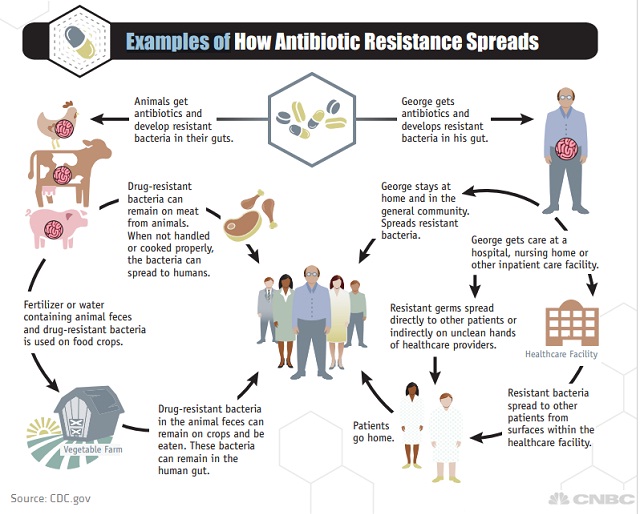
However, “the risk (of) this is considered to be very low in the E.U. and America,” she continued.
“In these areas, there is something called a withdrawal period, (in which) antibiotic treatment of an animal is stopped so that antibiotics can clear the system before the animal is culled for meat or milked.”
This applies to both organic and nonorganic farming practices, Evans noted. After the withdrawal period, she said, “[t]he levels of antibiotic in the food are considered to be several hundred times below the levels (that) should affect bacteria in any way.”
Finally, the antibiotic-resistant bacteria present in meat may transfer antimicrobial resistance into human bacteria. However, the risk of this occurring is very low due to high cooking temperatures.
Also, “because of the withdrawal period,” Evans said, “it is very unlikely that antibiotic residues in meat would affect the (human) microbiome.”
Overall, the researcher told Medical News Today, “I think that all use of antibiotics poses a risk to human health, and that reducing unnecessary antibiotic use in animals should be part of the overall solution. “
“Antibiotics are needed (…) to safeguard animal health and welfare, but should only be used when the animals are sick and not used for growth promoters or to prevent animals getting sick in the first place. However, animal use shouldn’t detract from the fact that the vast majority of antibiotic resistance in humans is caused by overuse in humans.”
“Current evidence indicates that there is no direct impact of antibiotic residues in meat on human health, but the risk of generating antibiotic-resistant bacteria in animals poses a potential risk to humans. However, human antibiotic use is far more damaging in both respects.”
****
Nicola Evans is a doctoral researcher in structural biology at King’s College London
Source: Medicalnewstoday
 The Independent Uganda: You get the Truth we Pay the Price
The Independent Uganda: You get the Truth we Pay the Price



